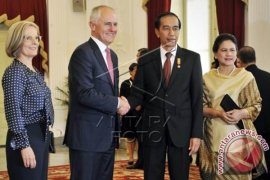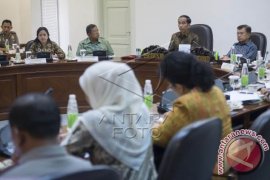Singapore (Antara Bali) - Countries in the Association of Southeast Asian Nations (ASEAN) are contributing to achieving a smoke-free zone by 2020, and Indonesia has taken countermeasures to handle land and forest fires in several hotspots during 2016.
"Indonesia has taken positive steps in addressing several hotspots during the past year. In 2016, there were hundreds of hotspots. This number decreased as compared to that in 2015 during which the number of hotspots had reached several thousand," Singaporean Minister of Environment and Water Resources Masagos Zulkifli stated at the 4th Singapore Dialogue for a Sustainable World Resources in Singapore on Thursday (Apr 6).
According to Zulkifli, the provinces of Riau and Jambi were ravaged by forest fires in mid-January of 2017 due to the dry weather, and Indonesia quickly declared an emergency status on January 24, 2017.
He pointed out that this action enabled the rapid deployment of resources and coordination between the central and local governments in dealing with the fires.
According to the minister, another important measure taken by Indonesia was adopting a long-term action plan to address land and forest fires. In 2016, the Indonesian government had announced a five-year moratorium on the issuance of new permits for palm oil concessions.
The moratorium will prevent the lands from draining and protect the carbon-rich peatlands. The moratorium extends to the concession plantations.
"The UN Environment Program Executive Director Erik Solheim recently praised Indonesia, calling the moratorium as a positive and historic decision, both for Indonesia and to the global efforts to tackle climate change," Zulkifli emphasized.
He added that when the central government is actively addressing the forest fires, the provincial administration also plays an important role.
Zulkifli noted that South Sumatra Governor Alex Noerdin had played an exemplary role by applying the Green Growth Development concept.
"As you have heard, the plan adopts a multi-stakeholder approach that leads to the sustainable management of forest land," he explained.
In June 2016, more than 2,700 small, independent farmers, managing a land area of 5,500 hectares in South Sumatra, received a certificate of Roundtable on Sustainable Palm Oil (RSPO).
"By far, this is the largest independent farmers group to have obtained the RSPO certificate in the world," Zulkifli pointed out. (WDY)




